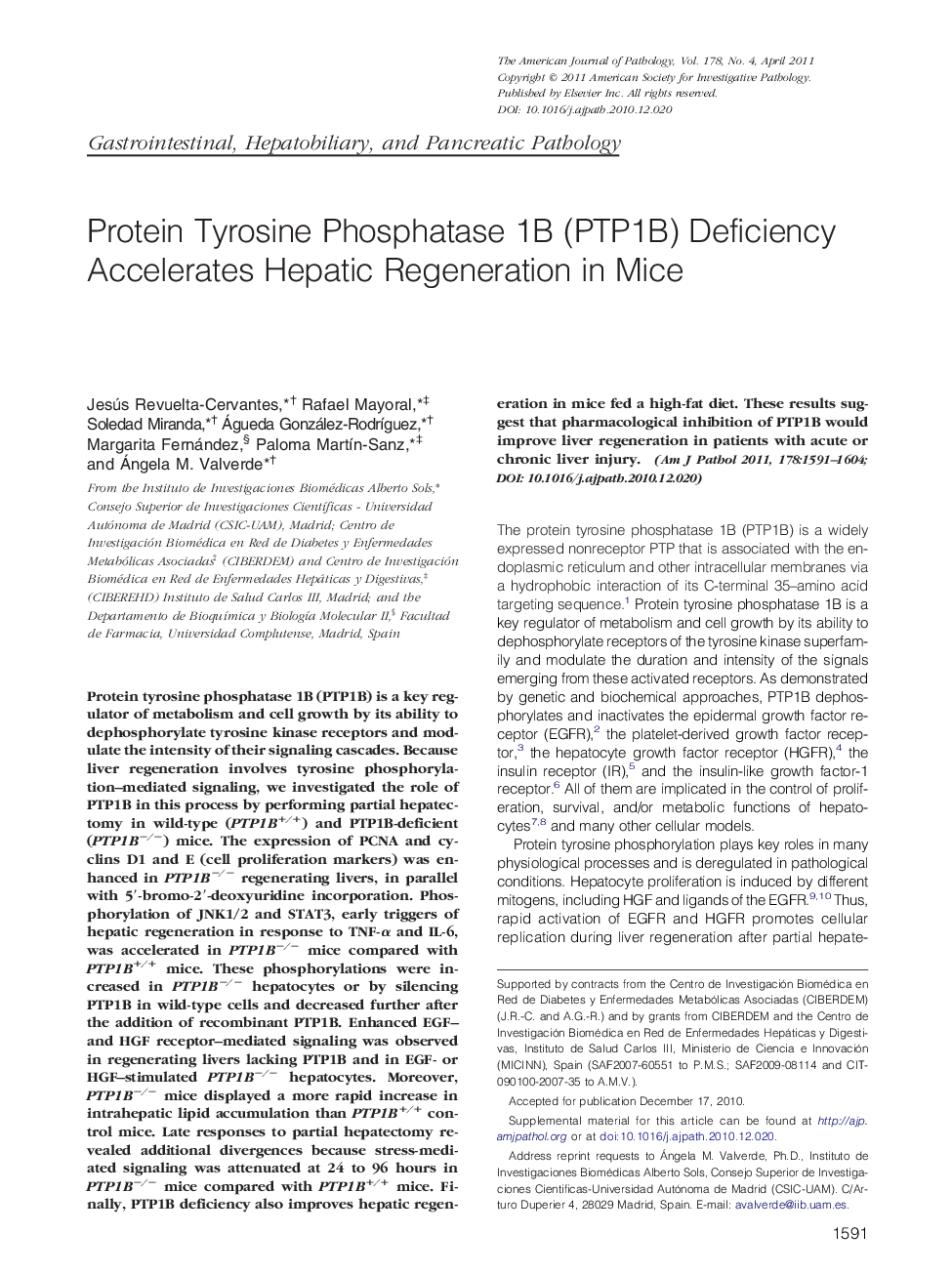| Article ID | Journal | Published Year | Pages | File Type |
|---|---|---|---|---|
| 5936035 | The American Journal of Pathology | 2011 | 14 Pages |
Protein tyrosine phosphatase 1B (PTP1B) is a key regulator of metabolism and cell growth by its ability to dephosphorylate tyrosine kinase receptors and modulate the intensity of their signaling cascades. Because liver regeneration involves tyrosine phosphorylation-mediated signaling, we investigated the role of PTP1B in this process by performing partial hepatectomy in wild-type (PTP1B+/+) and PTP1B-deficient (PTP1Bâ/â) mice. The expression of PCNA and cyclins D1 and E (cell proliferation markers) was enhanced in PTP1Bâ/â regenerating livers, in parallel with 5â²-bromo-2â²-deoxyuridine incorporation. Phosphorylation of JNK1/2 and STAT3, early triggers of hepatic regeneration in response to TNF-α and IL-6, was accelerated in PTP1Bâ/â mice compared with PTP1B+/+ mice. These phosphorylations were increased in PTP1Bâ/â hepatocytes or by silencing PTP1B in wild-type cells and decreased further after the addition of recombinant PTP1B. Enhanced EGF- and HGF receptor-mediated signaling was observed in regenerating livers lacking PTP1B and in EGF- or HGF-stimulated PTP1Bâ/â hepatocytes. Moreover, PTP1Bâ/â mice displayed a more rapid increase in intrahepatic lipid accumulation than PTP1B+/+ control mice. Late responses to partial hepatectomy revealed additional divergences because stress-mediated signaling was attenuated at 24 to 96 hours in PTP1Bâ/â mice compared with PTP1B+/+ mice. Finally, PTP1B deficiency also improves hepatic regeneration in mice fed a high-fat diet. These results suggest that pharmacological inhibition of PTP1B would improve liver regeneration in patients with acute or chronic liver injury.
